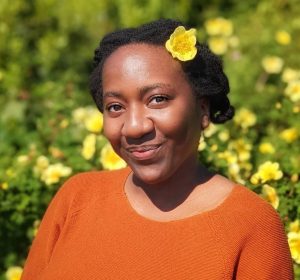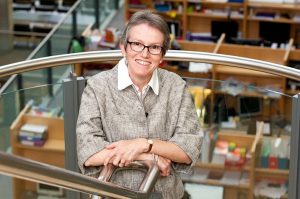
Last year, we proudly launched our Julia Anderson Training Programme, a paid internship scheme for people who have little or no work experience, as we know how difficult it can be for people to get that first foot in the door. This programme is the first of its kind at Imperial, giving people the opportunity to boost their skills while working on an impactful programme of work at IGHI. Our first trainees, who you can read about on our website, worked on a range of topics including education, digital health, and data science.
Now open for its second round of applications, Clarissa Gardner, Research Assistant at the Institute Global Health Innovation, who led the creation of the programme, gives her thoughts on why now, more than ever, these placements are needed.
Why I was inspired to act

As the events of 2020 unfolded, we saw a resurgence in public interest to acknowledge and act against institutional racism in organisations and settings such as law enforcement, the media, and healthcare. In academia, both the data and anecdotal evidence speak to similar issues experienced by marginalised groups such as unequal access to opportunities, lack of role models and poor representation in senior positions, to name a few.
From my own experience, I know what it’s like to feel that missing sense of belonging in academia. I remember 10 years ago when I first visited Imperial as a prospective undergraduate student. I felt out of place as a woman, as a person of colour, and as someone from a low socioeconomic background standing in one of the most affluent areas of London. The feeling was so overwhelming it made me embarrassed to even consider putting Imperial on my UCAS application.
Reflecting on that experience, it can be easy to feel defeated or even that wider efforts to “dismantle our colonial past” are not enough to address the barriers (both tangible and intangible) that leave some people feeling like Imperial or academia is not for them.
A huge turning point for me was joining Imperial As One, the race equality network for postgraduate students and staff at Imperial, and later becoming a committee member. I realised how impactful it was for me to meet other people who felt the same way that I did, but also meet people with drive to put their frustrations into action and create a better culture at Imperial that values what a diverse workforce can bring.
Creating the Julia Anderson Training Programme
Reflecting on our Institute, I saw IGHI as a place with such a diverse team, both in terms of our professional backgrounds but also cultural and ethnic backgrounds. Because of this, we could lead the way in creating opportunities for the immense talent emerging from schools and universities. That’s what drove me to pursue the development of our Julia Anderson Training Programme.
Creating the Programme required us to change our hiring processes and offer fixed-term contracts of employment to ensure incoming trainees could access the same staff benefits other staff are entitled to. We needed to redesign our application process to make it more accessible to people with limited work experience who may struggle to provide a CV. We also needed staff trained to support the needs of incoming trainees from diverse backgrounds.
The process of proposing the Programme through to designing the application process and recruitment strategy has been an incredible learning experience. The programme also wouldn’t be where it is today without the instrumental involvement and support of other parts of the College, including the Human Resources department, the Equality Diversity and Inclusion Centre, Imperial As One, and People and Organisational Development
We decided to name the Programme in memory of our late colleague Julia Anderson who was a champion of professional development, a valued colleague and a friend.
Our hopes for the future

With this initiative we hope to create an accessible application process and meaningful work experience for people at the early stages of their career with a proactive and inclusive marketing strategy to reach people from underrepresented backgrounds in academia. We hope the programme will be successful in launching the careers of early career professionals and that in the near future, we will see similar initiatives throughout the College.
My own hope is that the Julia Anderson Training Programme will demonstrate the value of dismantling barriers to employment and challenge requirements for entry-level roles across all industries. I hope this Programme serves as inspiration for others to strive towards fairer and more inclusive hiring practices.
The team involved in the creation of the Julia Anderson Programme:
IGHI: Nikita Rathod, Nicolette Davies, Eleanor Challenger, and Sophie Pieters.
Imperial: Equality Diversity and Inclusion Centre (Kani Kamara), Human Resources (Rob Farace, Jason Chambers, Deborah Demathieu, and Nandini Bhudia), Imperial As One, and People and Organisational Development.
Clarissa Gardner is a Research Assistant in the Digital Health team at the Institute of Global Health Innovation.
The Julia Anderson Training Programme is now open for applications for Summer 2022. The deadline to apply for trainee positions is the 24 April.
We are holding a webinar on the 4 April for potential applicants.